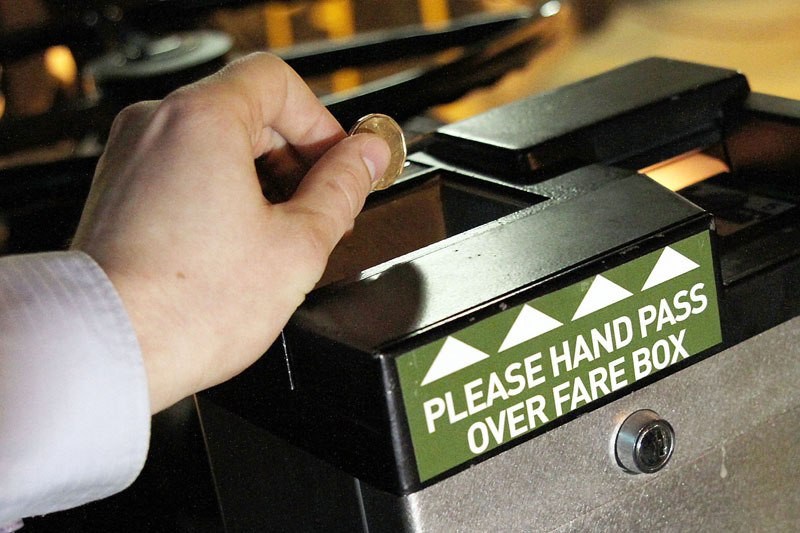The cost of riding City Transit buses is going up on April 1.
City officials on Monday announced a single-fare ride will increase five cents, to $2.65, when the new rates kick in next month.
Jon Hendel, Transit’s planning and marketing analysis, said the increases were necessary to cover inflationary increases and were approved in the city’s 2013 annual operating budget.
“Some fares have increased, some fares see a reduction, based on the new fare table.”
Hagi Transit customers will see the most noticeable drop in price for a single ride, with fares lowered to match those of Thunder Bay Transit, which was mandated through the province’s Accessibility for Ontarians with Disability Act.
Equal fares make it easier for families to share ticket books, he added, estimating the cost to ride Hagi Transit prior to Jan. 1 was between $3.50 and $4.
“All Thunder Bay Transit fares are open to specialized riders, as well as to conventionalized riders,” Hendel said. “So that’s for the big bus and the Hagi bus.”
Twenty-ride passes are climbing $5, to $40, while a book of 10 tickets will increase from $20 to $24, a 20 per cent jump. Family day passes are going up a whopping 75 per cent, to $10.50.
The family passes, which have been growing in popularity, especially among visitors to Thunder Bay, haven’t gone up since they were initially introduced a decade ago.
It’s still a good deal, Hendel said.
“It’s unlimited travel for one adult and two children, or two adults and three children,” he said. “With the new transit fare table, it basically creates a standard of increase across the fares. With the recent adoption of the new fare table through the transit master plan, all the fares have been put into place so they are now balanced across the province.”
Monthly discount passes are up 6.7 per cent to $63.50. They were $59.50.
The city-run organization is also introducing a senior and youth monthly pass, which will cost $53. It is not presently available.
“Through the transit master plan process we’ve heard very loudly from the senior community as well as the youth community, looking for a fare for them. Obviously with the aging community, this will definitely benefit the community,” Hendel said.
Transit has dropped the age to qualify for senior rates from 65 to 60. Youth rates apply to children between the ages of six and 18.
Hendel said transit-fare increases are necessary and riders should expect them to be implemented on an annual or biennial basis going forward.
Sign in or register
- Messages
- Post a Listing
- Your Listings
- Your Profile
- Your Subscriptions
- Your Likes
- Your Business
- Support Local News
- Payment History
Registered Users
Already have an account?
New Users
Create a free account.
